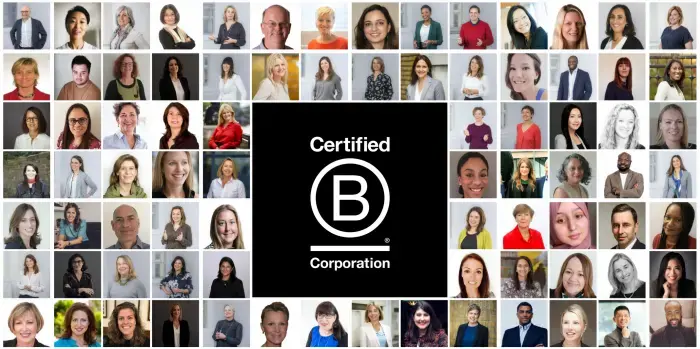1 min read
Psychological Safety
What is Psychological Safety? Psychological Safety is a concept introduced by Professor Amy Edmondson in a Harvard Business School journal article
Insights to help leaders and organisations thrive and drive growth & inclusion.
Geraldine Gallacher Keynote Speaker
Speaker, podcaster, author and master coach.
Our resource hub for working parents, carers and managers navigating work-life balance.
Real stories from leaders driving inclusion & equity in today’s shifting world.
Fortnightly insights on leadership, equity & the future of work. For senior leaders & curious thinkers.
A monthly digest of the shifts shaping how we lead and work.

Like many of the DEI, talent and HR people we work with, we spend much of our time on the ground with managers and their teams. This familiarity with organisations means that we have seen a lot of thoughtful solutions and practices implemented to make progress in equity. But, while credible in conception, only a few of these initiatives typically get organisations where they want to be. The commitment to change may be genuine from employers, and we work with many talented and persistent professionals constantly pushing for progress. Still, their actions don’t have the impact they hoped for.
So, we (as organisations, suppliers, investors, and employees) have a problem, and we must get moving to solve it. Of course, achieving change goes beyond the solutions we provide at ECC. Recognising this, in 2018, we began to produce guides, explainers and insights to support organisations on their journey to inclusion and equity. In 2020, on a mission to help employers be family-friendly, which is critical for gender equity, we open-sourced all our resources for parents and carers onto Work, Family & You. In 2022, we combined our insights with additional research to answer the question, what needs to happen next in delivering gender equity?
We doubt we have all the answers, but I want to share what we have learnt so far, and the three questions we are asking our clients that we are learning are critical for change.
To achieve equity in any area, whether gender or social class, you must rethink how you approach talent. More frequently, organisations see their internal pipelines dry up not from a lack of competent staff but because their definition of talent needs to be broader. If the criteria we use to identify and develop talent exclude 90% of employees from a working-class background, women, and racial minorities, isn’t it time to rethink the criteria? Research shows that for an organisation to promote women, they must consistently and repeatedly reach a higher bar than men. And when it comes to identifying leadership potential, the conclusion unequivocally reached from the most extensive study ever undertaken on the disparity of how women get assessed on leadership potential against their actual capability was that assessments are typically flawed.
But if your talent identification system doesn’t work, what takes its place? If we accept that individuals are routinely sidelined, overlooked, underestimated, and ultimately lost, how do we find and unlock that talent?
There is no easy, quick win here, and it will take time to make a change. We know this. And with the pressure to meet talent requirements in teams struggling to attract or keep people, it can take a lot of work to avoid falling back on existing systems.
If you acknowledge the scale of the opportunity regarding the potential talent, then ask yourself how you could bypass your talent system to get more development and opportunity to the many rather than the few. The best solution is equity programmes that rely less on any nomination process. For example, some organisations are pushing development opportunities to every woman at a certain level or grade without manager nomination; others are looking at cohorts of individuals that have yet to be promoted and challenging themselves to examine whether their assessments may have been lacking. Audit your existing talent pools – do you need to widen your search criteria to include overlooked staff?
Companies may attract women or people from working-class backgrounds or other underrepresented groups. Still, research from the Fawcett Society and the Bloomberg Gender Equity Index shows that the number of people from all these groups shrinks with every step up the corporate ladder. Most organisations like to think they promote staff on merit. Still, the prevalence of informal sponsorship in promotion decisions means people who look, sound and behave like existing leaders tend to get on.
Employers that recognise this are shifting the conversation to how DEI and Talent Development can work together to help those from underrepresented groups progress. Replacing informal sponsorship with more formal approaches to combat what the LSE has coined the “misdirection of merit”.
Firms are turning from poachers to conservationists, creating the right environment to grow an internal talent supply. An essential lever is the impact of managers. Organisations are increasingly looking at managers to see what they can learn about their impact on teams in terms of talent progression and in creating an environment that fosters growth and belonging. They are asking how managers see their role in unlocking and nurturing talent and considering how they are held accountable. Engaging managers at every level in embracing diversity and understanding their role as talent advocates can significantly impact equity. This approach will also help to unlock talent by scaling advocacy and sponsorship by managers to the many rather than the few. But bear in mind that research indicates that managers are facing burn out, and so they also need support and development to enable them to do this.
It sounds simple. But surprisingly, many senior and executive teams have lost sight of why equity is essential. Beyond investor and shareholder demands, is the case for equity understood in your organisation? Of course, the business case is well-evidenced and understood. Or at least I think it is. Moral arguments and the importance of a business being ‘good’ are also important.
But for the individual and their commitment and motivation, we are learning that these arguments are less important than the one prioritising their experience. Employee experience and their sense of fairness, belonging and the ability to grow and develop in an environment where they feel safe is where Talent Development and DEI actions meet.
There is still a long way to go to achieve equity, but knowing why is critical and not a given.
Achieving equity is complex; we all know that. The issues require a comprehensive approach. Many initiatives and practices aim to achieve this goal, but only a few of them typically have the desired impact. Organisations must re-examine how they approach talent and broaden their definition of talent to include individuals who may be routinely sidelined or underestimated. They must also create the right environment to grow an internal talent supply and remind themselves why achieving equity is important beyond investor and shareholder demands. Finally, they should prioritise employee experience and create a sense of fairness, belonging and the ability to grow and develop in a safe environment.
Equity is a long-term journey that requires a sustained effort. By asking the right questions and implementing appropriate solutions, organisations can create a workplace where everyone can thrive and contribute to the organisation’s success.

1 min read
What is Psychological Safety? Psychological Safety is a concept introduced by Professor Amy Edmondson in a Harvard Business School journal article

We are excited to announce that we have officially joined the B-Corp™ movement and have achieved B Corp™ status. As one of the first independent...
.jpg)
Discover the five hidden barriers that hold leaders back, fear of failure, imposter syndrome, resistance to change, low emotional intelligence, and...